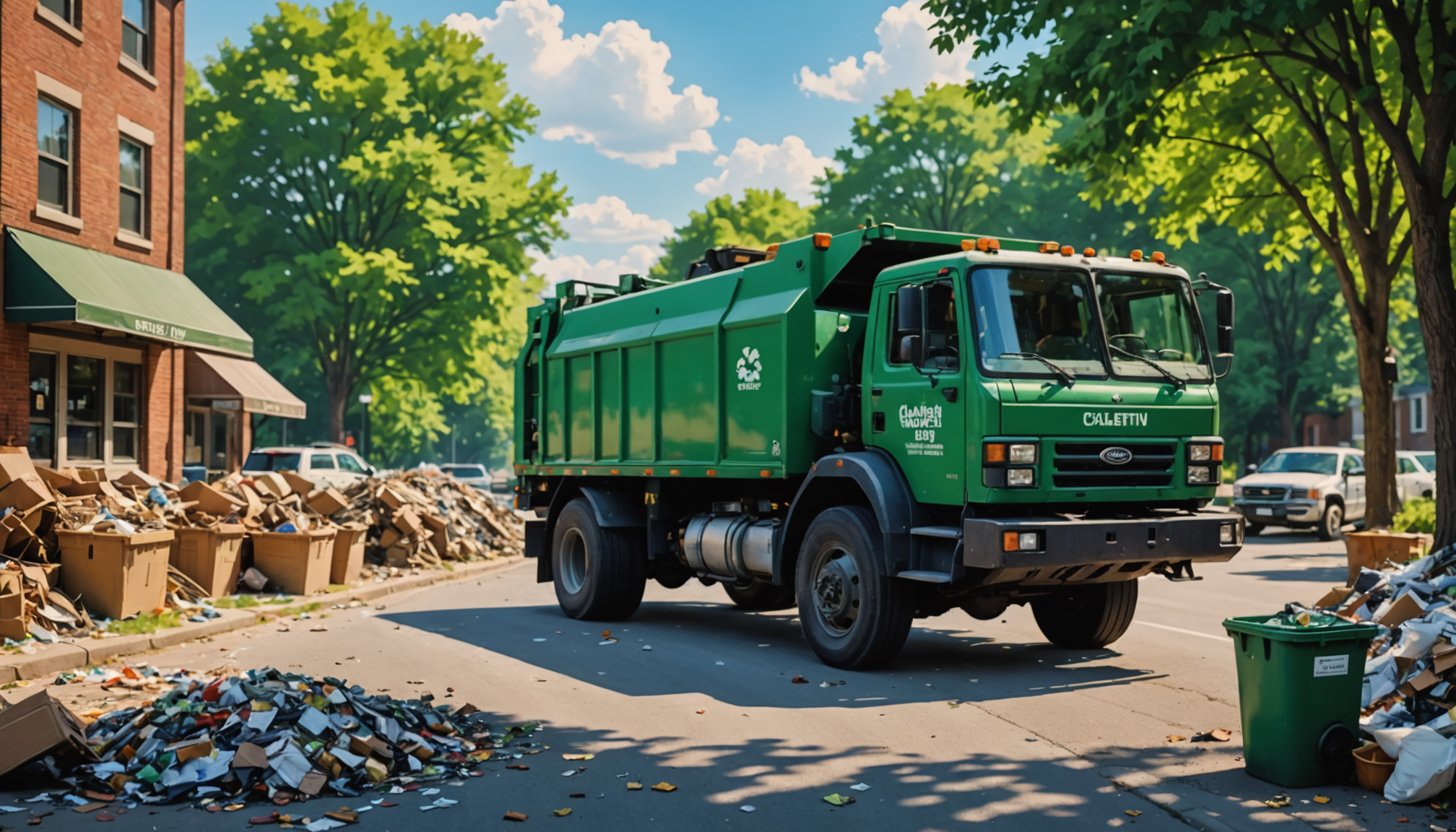
Solid Waste Services Collection Update Amid High Heat Index
The City’s Solid Waste Services has announced potential delays in garbage, recycling, and yard waste collection due to elevated heat index conditions. In alignment with Sustainable Development Goal (SDG) 11: Sustainable Cities and Communities, the City is committed to maintaining essential waste management services while ensuring the safety of both workers and residents.
Customer Guidance During Heat-Related Service Delays
- Residents are requested to keep their garbage, recycling, and yard waste carts at the curb until collection is completed.
- The City will temporarily suspend issuing warnings or fines related to cart placement during this period, promoting a supportive community environment.
Timely Cart Placement to Support Collection Efficiency
To assist collection crews in managing the heat and maintaining service efficiency, customers are advised to have their carts placed at the curb by 6 a.m. on their scheduled collection day. Ideally, carts should be set out the night before. This practice supports SDG 12: Responsible Consumption and Production by facilitating effective waste collection and reducing environmental impact.
Stay Informed with Real-Time Service Updates
Residents are encouraged to stay informed about service changes through the following digital tools, which contribute to SDG 9: Industry, Innovation, and Infrastructure by leveraging technology for improved public services:
- Raleigh Reuse Web Tool – Access service updates directly on the City’s website.
- Raleigh Reuse App on Google Play – Download for Android devices to receive notifications.
- Raleigh Reuse App on Apple App Store – Available for iOS users to monitor collection schedules and alerts.
These initiatives collectively support the City’s commitment to sustainable urban management and community resilience, advancing the broader United Nations Sustainable Development Goals framework.
1. Sustainable Development Goals (SDGs) Addressed
- SDG 11: Sustainable Cities and Communities
- The article discusses solid waste collection services in an urban setting, which is a key aspect of making cities inclusive, safe, resilient, and sustainable.
- SDG 12: Responsible Consumption and Production
- By promoting proper waste collection and encouraging the use of recycling and yard waste carts, the article relates to sustainable management and efficient use of natural resources.
- SDG 13: Climate Action
- The article mentions delays due to high heat index, indicating climate-related challenges affecting municipal services, thus linking to climate adaptation and resilience.
2. Specific Targets Under the Identified SDGs
- SDG 11: Sustainable Cities and Communities
- Target 11.6: Reduce the adverse per capita environmental impact of cities, including by paying special attention to air quality and municipal and other waste management.
- SDG 12: Responsible Consumption and Production
- Target 12.5: Substantially reduce waste generation through prevention, reduction, recycling, and reuse.
- SDG 13: Climate Action
- Target 13.1: Strengthen resilience and adaptive capacity to climate-related hazards and natural disasters in all countries.
3. Indicators Mentioned or Implied in the Article
- Indicator for SDG 11.6:
- Proportion of municipal solid waste collected and managed in controlled facilities.
- The article implies measurement of service efficiency and coverage by requesting customers to have carts ready by 6 a.m. and communicating delays.
- Indicator for SDG 12.5:
- National recycling rate, tons of material recycled.
- The emphasis on recycling and yard waste carts suggests tracking the amount of waste diverted from landfills.
- Indicator for SDG 13.1:
- Number of localities with operational climate adaptation plans.
- The article’s mention of service adjustments due to high heat index reflects adaptive measures to climate hazards.
4. Table of SDGs, Targets, and Indicators
| SDGs | Targets | Indicators |
|---|---|---|
| SDG 11: Sustainable Cities and Communities | Target 11.6: Reduce the adverse per capita environmental impact of cities, including municipal waste management. | Proportion of municipal solid waste collected and managed in controlled facilities; service efficiency and coverage metrics. |
| SDG 12: Responsible Consumption and Production | Target 12.5: Substantially reduce waste generation through prevention, reduction, recycling, and reuse. | National recycling rate; tons of material recycled; amount of waste diverted from landfills. |
| SDG 13: Climate Action | Target 13.1: Strengthen resilience and adaptive capacity to climate-related hazards. | Number of localities with operational climate adaptation plans; measures of service adjustments due to climate hazards. |
Source: raleighnc.gov







